Healthcare Sanctions Monitoring for HR

The healthcare industry faces some of the most demanding compliance requirements of any sector. Employers are responsible not only for providing quality patient care but also for ensuring that every staff member is legally authorized and ethically eligible to work in the field. Sanctioned individuals — those barred from participating in federally funded healthcare programs or prohibited from practicing due to misconduct — present significant risks if they are employed unknowingly.
Healthcare sanctions monitoring provides HR teams with the tools to continuously check employee records against federal and state exclusion lists. By doing so, healthcare organizations can protect patients, safeguard their reputations, and avoid costly regulatory penalties. Here we'll explain what sanctions monitoring involves, why it is critical for healthcare HR leaders, the systems and regulations that drive it, challenges employers face, and how technology solutions like Vetty make it easier to manage.
What are Healthcare Sanctions?
Healthcare sanctions are penalties or restrictions placed on individuals or entities that have violated healthcare laws, ethical standards, or program requirements. These sanctions can result in exclusion from participation in Medicare, Medicaid, and other federally funded programs.
Sanctions may be applied for reasons such as:
- Fraud, waste, or abuse of government healthcare programs
- Patient neglect or abuse
- Drug-related offenses
- License suspension or revocation
- Financial misconduct
- Failure to meet professional standards of conduct
Once sanctioned, individuals are listed on official exclusion databases that employers are required to monitor.
Key Sanctions Lists for HR
Office of Inspector General (OIG) Exclusion List
The OIG maintains the List of Excluded Individuals and Entities (LEIE). Anyone on this list is prohibited from participating in federally funded healthcare programs.
System for Award Management (SAM)
SAM.gov contains a consolidated list of individuals and organizations that are excluded from receiving federal contracts, subcontracts, or certain types of federal assistance.
State-Level Exclusion Lists
Many states maintain their own exclusion lists, which may contain individuals not listed on federal databases. Employers must check both state and federal lists to remain compliant.
Specialty and Credential Databases
In addition to OIG and SAM, HR teams often monitor state medical boards, nursing boards, and specialty credentialing bodies for license suspensions or disciplinary actions.
Why Healthcare Sanctions Monitoring Matters
Patient Safety
Employing sanctioned individuals can put patients at risk. Monitoring ensures that healthcare providers remain qualified and trustworthy.
Regulatory Compliance
Failure to check sanctions lists can lead to violations of federal law. Healthcare organizations that bill Medicare or Medicaid must ensure employees are not excluded individuals.
Financial Protection
Employing sanctioned individuals can result in repayment of claims, civil monetary penalties, and fines that may reach millions of dollars.
Reputational Risk
A single compliance failure can harm public trust. Patients and communities expect healthcare organizations to operate ethically and transparently.
How Sanctions Monitoring Works
- Pre-Employment Screening
Candidates are checked against OIG, SAM, and state lists before hire to ensure they are not sanctioned. - Continuous Monitoring
After hire, employees are enrolled in monitoring programs that regularly update checks against exclusion databases. - Alert System
Employers receive notifications if an employee appears on an exclusion list. - Adjudication Process
HR and compliance teams review the alert, verify the information, and determine next steps such as reassignment or termination. - Documentation
All monitoring activity must be documented to demonstrate compliance in case of audits.
Challenges in Healthcare Sanctions Monitoring
Volume of Data
Healthcare organizations may employ thousands of individuals, making manual checks against multiple databases nearly impossible.
Inconsistent Data Sources
Federal, state, and specialty lists vary in how they present information, which can create challenges for HR teams.
False Positives
Common names or incomplete data can result in mistaken matches, which require careful adjudication.
Resource Constraints
Small HR teams often lack the resources to conduct frequent checks without automation.
Rapid Workforce Turnover
Healthcare is an industry with high turnover, which increases the need for consistent monitoring.
Best Practices for HR Leaders
- Automate monitoring
Use technology to check databases continuously rather than relying on manual monthly or quarterly reviews. - Centralize compliance workflows
Maintain a single system where alerts, adjudications, and documentation are stored. - Train staff thoroughly
HR and compliance teams should be trained to interpret alerts and handle them fairly. - Integrate with HR systems
Link monitoring platforms with applicant tracking systems and human capital management systems for efficiency. - Audit regularly
Conduct periodic audits of the monitoring process to ensure all employees are properly covered.
The Role of Technology in Sanctions Monitoring
Technology has transformed sanctions monitoring from a manual process into an automated, scalable solution. Modern platforms provide:
- Real-time access to federal and state exclusion databases
- Automated alerts when employees appear on lists
- Integrated workflows for adjudication and compliance reporting
- Mobile-first tools for employee engagement
- Dashboards that provide a complete view of workforce compliance
For HR teams, technology not only reduces the administrative burden but also strengthens compliance by ensuring no one falls through the cracks.
Why Vetty is a Strong Solution
Vetty delivers healthcare sanctions monitoring as part of its broader compliance platform. VettyComply™ integrates OIG, SAM, and state-level exclusion checks into a single workflow. Employers receive real-time alerts when employees appear on exclusion lists, and automated tools make it simple to track renewals, credentials, and adjudications.
Unlike traditional vendors that rely on periodic rechecks, Vetty embeds continuous monitoring directly into the workforce lifecycle. Its mobile-first design keeps employees engaged, while seamless integration with HR systems ensures compliance teams have full visibility. For healthcare organizations facing high turnover, strict regulations, and constant audits, Vetty provides a modern, scalable solution.
Frequently Asked Questions
What is the OIG exclusion list?
The OIG exclusion list (LEIE) identifies individuals and entities that are prohibited from participating in federally funded healthcare programs.
How often should healthcare organizations check sanctions lists?
Best practice is continuous monitoring. At a minimum, employers should check monthly to align with OIG recommendations.
What happens if an employee is found on a sanctions list?
The employer must remove the individual from federally funded healthcare activities. In many cases, employment may be terminated to maintain compliance.
Are state exclusion lists as important as federal lists?
Yes. Many states maintain their own lists, and employees excluded at the state level may not appear on federal lists. Employers must check both.
Does sanctions monitoring apply to volunteers and contractors?
Yes. Anyone who provides services billed to federally funded healthcare programs should be screened and monitored.
Conclusion
Healthcare sanctions monitoring is a vital responsibility for HR leaders in hospitals, clinics, and other care settings. By continuously checking employees against federal and state exclusion lists, organizations can protect patients, reduce liability, and maintain compliance with strict regulatory requirements.
Vetty provides a modern solution that automates sanctions monitoring, integrates with HR systems, and ensures healthcare organizations remain compliant without overwhelming HR teams. In an industry where patient safety and regulatory trust are non-negotiable, sanctions monitoring is more than a best practice — it is an operational necessity.
Let’s Build Your Hiring Advantage
Want to screen faster, place sooner, and win more? Let’s talk.






